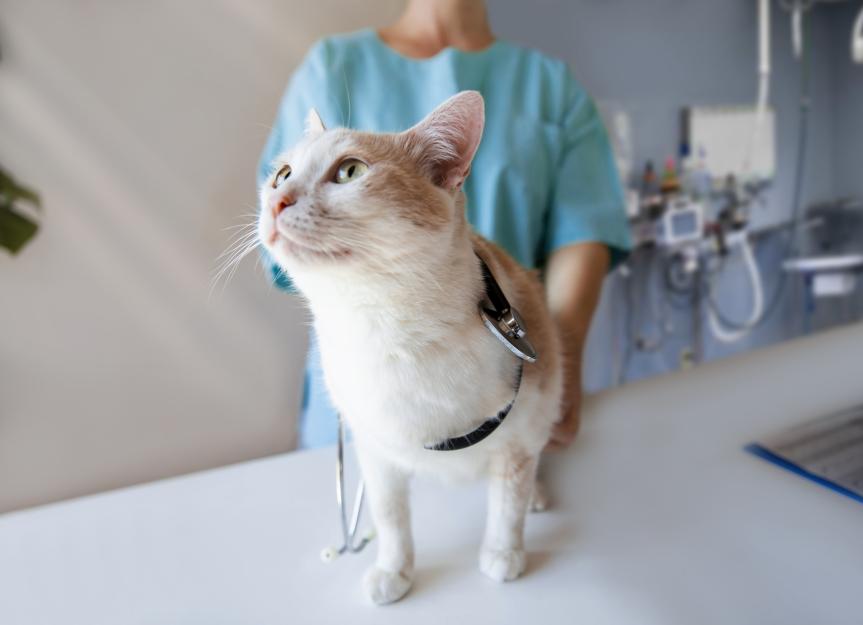
A cat spay or neutered is a common surgical procedure, and it is one that strengthens the human-animal binding.
This procedure not only limits overpopulation of pets, but it prevents unwanted and risky behavior and can lead to a healthier future for your cat.
Read on to learn more about Cat Neuter, the benefits of getting your cat castrated and the various available options when it comes to the costs of throwing a cat.
Key dealers
- A Katteuter is a common surgical procedure.
- Cats vary in price depending on where they are performed, either due to living expenses or the type of veterinary practice.
- Some veterinarians collaborate with their local protection to offer these operations in their clinics on a coupon basis, so be sure to ask your veterinarian if such a coupon is in your area.
What is a cat's thrower?
Medically called orchiectomy, a catteuter, or more commonly called “castration” or “sterilization”, is the surgical removal of a male cat reproductive organs (testicles).
While a Cat Neuter is one of the simplest, safest and most routine surgical procedures performed in veterinary medicine, there are rarely complications.
A catteuter is often treated as an outpatient visit and rarely requires hospitalization overnight. Your cat will be stunned throughout the procedure.
The veterinary group will remove the hair around the scrotum and make a small incision over each testicle, which will then be ligated or tied off and removed. The cut will be left open to heal.
There are minimal recovery time, which usually only requires two weeks of limited activity.
How much do cat neuters cost?
Cats vary in price depending on where they are performed, either due to living expenses or the type of veterinary practice.
Praxis often charges anywhere from $ 100 to $ 500 to throw a cat. Some animal welfare, rescues or non-profit companies may offer cat neuters at subsidized or discounted prices.
Factors affecting the cost of neutoring a cat includes:
Additional fees can be charged if your cat is cryptorchid, which means that one or both testicles have failed to go down the scrotum.
This is because the surgical procedure is more invasive and requires additional time.
Benefits of a cat's thrower
Neutation Your cat is recommended for several reasons.
First, it is a primary step towards creating a suitable and long -lasting cat mate. As neutation a cat reduces unwanted and often frustrating behaviors that intact male cats usually exhibit, the procedure improves the band between cat and cat parent.
When your cat reaches sexual maturity, about 4-6 months of age, behaviors such as urinary injection, territorial aggression and roaming, and subsequent battles are more likely to develop in unpleasant cats.
These risky behaviors can lead to CAT acquiring weakening diseases, such as FIV (cat immune deficiency) and Felv (cat leukemivirus), as well as infections and pain.
Another advantage of neutrating your cat is to eliminate his risk of developing testicular tumors or testicular cancer.
Finally, neutralize your cat will help prevent cat overpopulation in your area.
What to do if you can't afford to have your cat neutered
Not all cat parents may be able to afford their cat's castration surgery.
Fortunately, many animal welfare and rescues offer this procedure for free or at a reduced rate. Search the web for spay/neuter clinics in your area.
One advantage of adopting a kitten through your local protection or human organization is that he will probably have already been castrated and thus eliminate this financial difficulty.
Some veterinarians collaborate with their local protection to offer these operations in their clinics on a coupon basis, so be sure to ask your veterinarian if such a coupon is in your area.
Alternatively, financing options – such as Carecredit or Skrappy – may be available for you to apply and use for your cat's castration procedure.
And although you should consider pet insurance for future emergency situations or diseases that your cat may face, most insurance plans will not cover your cat's castration surgery as it is considered an optional procedure.
No matter where your cat is neutered or how the procedure is funded, the benefits really outweigh the risks. Make sure to include this important operation in your health check list for when using your next kitten.
It's never too late – if your cat has not been castrated, reach out to your veterinarian to schedule a consultant for the procedure.

